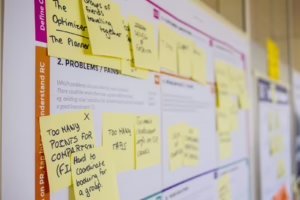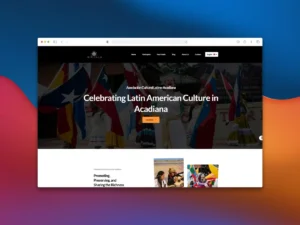WordPress has made web design accessible to the masses, allowing anyone to create beautiful websites without any coding. With its intuitive interface, vast theme library, and expansive plugin ecosystem, it offers a user-friendly path to a powerful website without a line of code. However, for web designers truly looking to excel, mastering fundamental coding languages like HTML, CSS, JavaScript, and PHP isn’t just an advantage but a requirement of the job.
True Customization with Code
While drag-and-drop page builders and pre-built themes offer incredible convenience, they inherently come with limitations. They are meant for common situations, but when a client’s vision changes, designers without coding skills may struggle to keep up with the changes in requirements. Learning to code empowers you to:
- Achieve Pixel-Perfect Designs: Translate complex design mockups into reality with precision. Coding gives you granular control over every element, ensuring your website looks exactly as envisioned. I don’t agree 100% with the pixel-perfect approaches but knowing how to code help you eliminate issues when traditional breakpoints are not enough.
- Create Unique User Experiences: Go beyond standard animations and interactions. With JavaScript, you can craft bespoke interactive elements, dynamic content loading, and personalized user flows that set your websites apart.
- Develop Custom Functionality: If a client needs a feature that no existing plugin offers, coding allows you to build it from scratch. This could be anything from a custom calculator to a unique data integration, significantly expanding your service offerings. Some designers might think that vibe coding a plugin might be a good idea. However, you will face challenges on upgrading and updating the plugin once it is in production and it needs to be compatible with newer versions of WordPress.
Enhanced Performance and Security
A well-designed website isn’t just about aesthetics; it’s also about speed and security. Relying solely on off-the-shelf solutions can introduce inefficiencies and vulnerabilities. Coding knowledge enables you to:
- Optimize for Speed: Plugins, while helpful, can sometimes add unnecessary code (“bloat”) that slows down a website. Understanding code allows you to identify and remove redundant scripts, optimize asset loading, and implement efficient caching strategies, leading to faster load times and a better user experience.
- Fortify Security: While WordPress is generally secure, its popularity also makes it a target for malicious attacks. Knowing how to code enables you to create custom security measures, fix vulnerabilities, and understand how a site is protected, providing clients with peace of mind.
- Minimize Plugin Reliance: Excessive plugins can lead to performance issues and compatibility conflicts. Coding skills enable you to add custom functions directly to your theme, minimizing the use of plugins and resulting in a more streamlined and stable website. You can avoid a lot of plugins by using the functions.php file to enhance the functionality of the website.
Troubleshooting and Problem Solving
Even with the most robust tools, issues can arise. Websites can break, features might malfunction, or conflicts can emerge. For designers without coding expertise, troubleshooting can be a frustrating and time-consuming process, often requiring reliance on external developers. When you know how to code:
- Diagnose and Resolve Issues Independently: You can dive into the theme files, examine the console for errors, and understand the underlying logic to pinpoint the root cause of a problem. This significantly reduces downtime and client frustration.
- Debug Plugin Conflicts: When multiple plugins clash, identifying the culprit and implementing a fix becomes much more manageable if you can read and understand the code involved.
- Adapt to Algorithm Changes: Search engine algorithms are constantly evolving. Understanding how search engines crawl and index websites, which often involves understanding the underlying HTML structure and JavaScript rendering, helps you quickly adapt your optimization strategies. In addition, it improves accessibility and usability of the site by using the proper HTML tag for the job.
Career Growth and Future-Proofing
The web development landscape is dynamic, and staying competitive requires continuous learning. For web designers, embracing coding skills is an investment in their long-term career:
- Increased Demand and Earning Potential: Clients are increasingly looking for designers who can offer a full spectrum of services, from design to custom development. Coding skills make you a more valuable asset and can command higher rates.
- Specialization in WordPress Development: Beyond design, you can specialize in WordPress theme development, plugin creation, or even become a full-stack WordPress developer, opening up new career paths. PHP is still and will be popular in the future. I have seen articles of the death of PHP since early 2000s. However, PHP is still strong and powers a vast majority of websites today.
- Adaptability to Emerging Technologies: The fundamental principles of coding are transferable. Learning one language makes it easier to pick up others. This adaptability ensures you remain relevant as new technologies and platforms emerge.
Conclusion
In conclusion, while WordPress has simplified website creation, the true mastery of web design, especially within the WordPress ecosystem, comes with a solid understanding of code. It turns designers into creators who can build unique, high-performing, and secure websites that stand out online. Web designers who want to explore the full potential of WordPress must learn to code; it’s essential for a professional WordPress designer.




